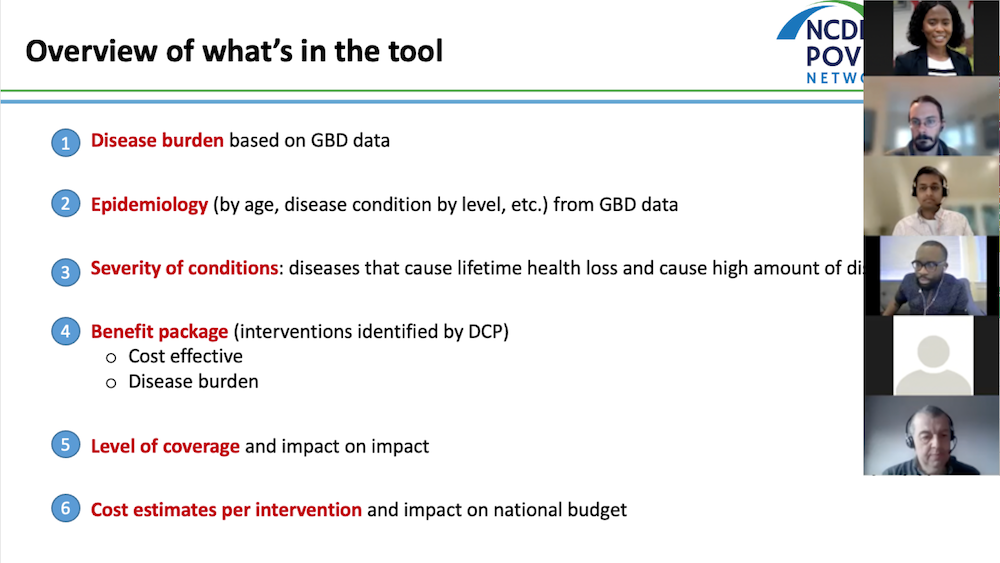Fourth Learning Workshop Focuses on Priority Setting
The workshop concluded with a demonstration of an online tool that has been developed to facilitate the priority-setting process.
Thirty-eight participants representing all seven new member countries, supporting organizations, and the Network Secretariat gathered virtually on 18 November for the fourth Learning Workshop on strategies and approaches to prioritizing NCDI interventions. The event included a presentation on data sources, covered key topics such as analytic approaches to priority setting and lessons on applying those approaches, and concluded with a demonstration of an online tool that has been developed to facilitate the priority-setting process.
The workshop featured simultaneous interpretation in French and English that facilitated lively discussion between participants on the benefits and challenges of national priority setting.
The event began with an introduction to priority setting by Dr. Neil Gupta, Director of Policy for the Secretariat, who conducted polls to begin conversation and encourage knowledge sharing between attendees. Dr. Gupta’s presentation outlined how data can be utilized to identify health interventions that are both cost-effective and equitable on a national level.
Dr. Ann Akiteng, Coordinator of the Uganda NCDI Poverty Commission and Deputy Director of the Uganda Initiative for Integrated Management of NCDs (UINCD), shared the experience of the Uganda Commission in prioritizing NCDI conditions and interventions based on burden of disease, severity, cost-effectiveness, and equity. The priority-setting exercise brought the Uganda Commission a new perspective on the burden of disease and refocused their priorities within categories of NCDs.
Dr. Emmanuel Mensah, Assistant Director of Policy for the Network Secretariat, shared the combined results of the six countries that have completed their priority-setting exercises, focusing on the 15 conditions and 18 interventions prioritized by all six national commissions as well as the cost of prioritized interventions.
Finally, Matt Coates demonstrated a new online tool that has been developed to facilitate the priority-setting process for Network members by using nation-specific data to analyze disease burden, epidemiology, severity of conditions, benefit packages, cost estimates per intervention, and impact on the national budget.
The next Learning Workshop will feature presentations from representatives of commissions that have completed Phase 1 of the commission process and published their reports, offering practical lessons on effective ways to disseminate key findings and recommendations and to impact NCD policies, priorities, and programs.

